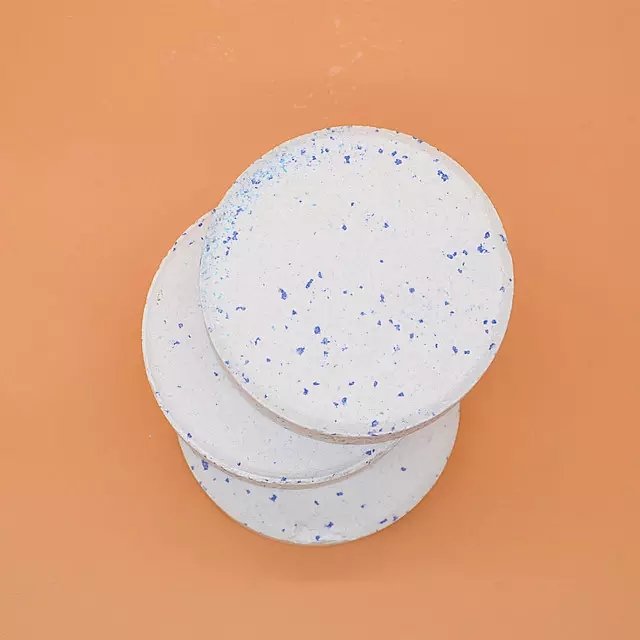I.Introduction
Chlorine tablets are vital for maintaining water hygiene. From swimming pools to drinking water systems, they play a key role in ensuring clean and safe water. However, improper handling or misuse can pose risks to both human health and the environment. This guide aims to provide comprehensive knowledge on the safe use of chlorine tablets, helping users avoid hazards while benefiting from their powerful disinfecting properties.

II.Understanding Chlorine Tablets
a.Chemical Composition and Functionality
Chlorine tablets are typically composed of compounds like trichloroisocyanuric acid. These ingredients release chlorine when dissolved in water, initiating a chemical reaction that eliminates harmful microorganisms such as bacteria, viruses, and algae. This disinfecting action ensures water remains safe for human use.
b.Common Applications
Swimming Pools and Drinking Water: Maintaining pool hygiene and treating drinking water are among the most popular uses for chlorine tablets.
Industrial Water Treatment: They are widely used in industries to manage water quality in cooling towers and wastewater systems.
Household and Miscellaneous Uses: Cheap chlorine tablets with discount options make them accessible for general household cleaning, including disinfecting surfaces or small water containers.
III.Key Precautions When Using Chlorine Tablets
a.Safe Storage Practices
Storage Conditions: Keep chlorine tablets in a dry, cool area, away from moisture and flammable materials.
Packaging Integrity: Ensure the tablets remain in their original packaging to avoid accidental exposure to air or water, which could trigger dangerous chemical reactions.
b.Dosage Control
Determining the Right Amount: Proper dosage depends on water volume and quality. Overdosing can lead to harmful chlorine residue, which may irritate skin or mucous membranes.
Potential Hazards of Overuse: Excessive chlorine levels not only harm humans but also impact aquatic ecosystems when discharged into the environment.
c.Operational Safety
Personal Protective Equipment (PPE): Always use gloves, masks, and protective eyewear when handling chlorine tablets to prevent direct contact and inhalation of fumes.
Avoid Mixing with Other Chemicals: Never combine chlorine tablets with acidic cleaners or other chemicals, as this may produce toxic gases.
Proper Ventilation: When using in enclosed spaces, ensure adequate airflow to prevent gas buildup.
d.Emergency Procedures
Accidental Ingestion or Inhalation: Rinse the mouth thoroughly, drink water, and seek immediate medical assistance. If fumes are inhaled, move to fresh air and contact emergency services.
Spill Cleanup: Use gloves and neutralize spills with water before disposing of the material in accordance with local regulations.
IV.Environmentally Responsible Use
a.Safe Disposal of Waste
Dispose of unused or expired chlorine tablets properly to avoid contaminating soil or water sources. Use designated waste facilities to handle these chemicals safely.
b.Eco-Friendly Alternatives
While chlorine tablets remain effective and affordable, consider eco-friendly alternatives when appropriate. For example, oxygen-based disinfectants or UV water treatment systems provide low-toxicity solutions for certain applications.
V.Addressing Common Misconceptions
Higher Doses Mean Better Results? Overdosing does not improve disinfection but instead increases the risks of chlorine poisoning and environmental harm.
Using Chlorine Tablets in Closed Spaces: It’s critical to avoid deploying chlorine tablets in poorly ventilated areas to prevent toxic gas accumulation.
Universal Solution? While effective, chlorine tablets are not suitable for resolving every water quality issue. Factors like pH balance and contaminant types often require additional treatment methods.
VI.Conclusion
The safe and effective use of chlorine tablets is essential for maintaining water hygiene while minimizing risks to health and the environment. By following proper handling, dosage, and disposal guidelines, users can maximize their benefits while staying safe. For those seeking cost-effective solutions, hot sale chlorine tablets or cheap chlorine tablets with discount options provide affordability without compromising on quality. Remember, responsible usage not only safeguards your health but also supports broader environmental protection efforts. For further guidance, consult local safety regulations or seek professional advice on water treatment best practices.


 Instant
Quote
Instant
Quote Email
Us
Email
Us